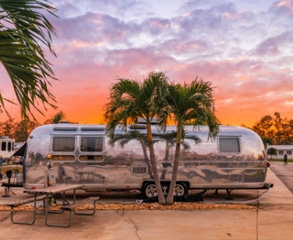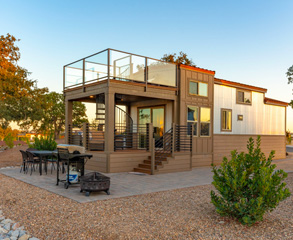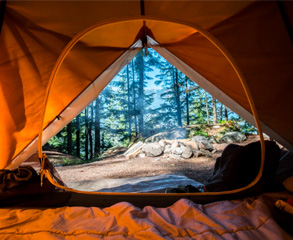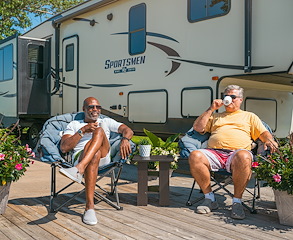Vacation Rentals vs. Hotels: Which is Right for You?
Vacation Rentals vs. Hotels: Which is Right for You?
When planning a trip, one of the biggest decisions you'll have is where to stay. With so many options available, the choice often boils down to home/apartment rental or hotel. Each has its unique pros and cons. In this post, we'll explore the key differences to help you decide which accommodation suits your needs.
The Comfort of Home: Vacation Rentals
Space and Privacy
One of the positive aspects of a home rental is the extra space they offer. Whether you're traveling with family or a group of friends, having multiple bedrooms, a living area, and sometimes even a backyard can make your stay much more comfortable. Additionally, having a kitchen to prepare coffee, snacks and meals can be a real time and money-saver.
Local Experience
Staying in a vacation rental often immerses you in the local culture. You can choose homes in quiet and quaint neighborhoods, giving you a more unique travel experience. Explore less tourist-y shops and restaurants to get a different perspective on the area.
Flexibility and Amenities
Some accommodations have amenities like kitchens, laundry facilities, and outdoor spaces, allowing for a more personalized experience. You can choose a property with a rooftop deck, fireplace or cozy outdoor space. You can even find unique rentals in the form of covered wagons, tree houses, train cars and more!
Serene Locations
You can find vacation rentals in places where there are fewer to no hotels, like the mountains, lakes, and forests.
The Convenience of Hotels
Consistent Quality
Hotels often provide a level of consistency and quality assurance so you know what to expect. Major hotel chains typically have standard practices that ensure you know what to expect regarding service, cleanliness, and amenities.
On-Site Services
Most hotels offer a range of services that can enhance your stay, such as room service, concierge services, and housekeeping. If a vacation means not cooking and cleaning, then a hotel might be the perfect option.
Prime Locations
Hotels are usually in high-traffic, tourist areas, making it easy and convenient to access attractions, dining, and nightlife. Hotels are great if you're looking for a place that puts you in the heart of the action. If you don't have a car on your trip, hotels are often located near public transportation so you can effectively get places.
Cost Considerations
Vacation Rentals
While rentals can be cost-effective, especially for larger groups, it's important to factor in additional fees. Cleaning fees, service charges, and deposits can add up quickly. However, cooking your meals can save you money on dining out. Being able to stay outside of tourist areas may also save you some cash.
Hotels
Hotels often have clearer pricing structures, but daily rates can increase significantly during peak travel seasons. Be mindful of added costs for parking, breakfast, or wifi fees that might not be included in the initial price. Finding a hotel with a free breakfast or loyalty program may help the cost.
Conclusion: What's Best for You?
Ultimately, choosing between the two comes down to personal preference and travel style. If you value space, a local experience, and cooking options, a vacation rental might be the way to go. On the other hand, if you prefer convenience, on-site services, and a consistent experience, a hotel could be the better choice.
Whichever option you choose, both can lead to memorable adventures. Happy travels!
Related Posts
Leaving Site
You are about to enter our customer portal. The portal allows current long-term (seasonal or annual) guests to check balances, make payments, and much more.
If you are not a current long-term guest, please close this window to book an online reservation or a long-term stay.








